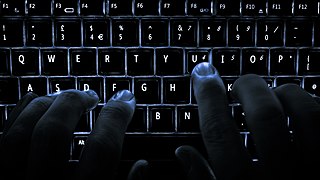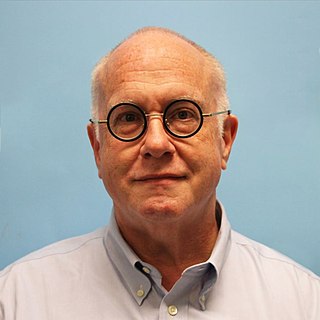Content-control software, commonly referred to as an Internet filter, is software that restricts or controls the content an Internet user is capable to access, especially when utilised to restrict material delivered over the Internet via the Web, e-mail, or other means. Content-control software determines what content will be available or be blocked.
Center for Democracy & Technology (CDT) is a Washington, D.C.-based 501(c)(3) nonprofit organization whose mission is to strengthen individual rights and freedoms by defining, promoting, and influencing technology policy and the architecture of the Internet.
Internet censorship in Australia is enforced by both the country's criminal law as well as voluntarily enacted by internet service providers. The Australian Communications and Media Authority (ACMA) has the power to enforce content restrictions on Internet content hosted within Australia, and maintain a blocklist of overseas websites which is then provided for use in filtering software. The restrictions focus primarily on child pornography, sexual violence, and other illegal activities, compiled as a result of a consumer complaints process.
Cleanfeed is the name given to various privately administered ISP level content filtering systems operating in the United Kingdom and Canada, and as of May 2012 undergoing testing in Australia with a view to future mandatory implementation. These government-mandated programs originally attempted to block access to child pornography and abuse content located outside of the nation operating the filtering system.

Internet censorship is the control or suppression of what can be accessed, published, or viewed on the Internet enacted by regulators, or on their own initiative. Individuals and organizations may engage in self-censorship for moral, religious, or business reasons, to conform to societal norms, due to intimidation, or out of fear of legal or other consequences.
Internet censorship in the United States is the suppression of information published or viewed on the Internet in the United States. The First Amendment of the United States Constitution protects freedom of speech and expression against federal, state, and local government censorship.
Internet censorship in the United Kingdom is conducted under a variety of laws, judicial processes, administrative regulations and voluntary arrangements. It is achieved by blocking access to sites as well as the use of laws that criminalise publication or possession of certain types of material. These include English defamation law, the Copyright law of the United Kingdom, regulations against incitement to terrorism and child pornography.
Censorship in Denmark has been prohibited since 1849 by the Constitution:
§ 77: Any person shall be at liberty to publish his ideas in print, in writing, and in speech, subject to his being held responsible in a court of law. Censorship and other preventive measures shall never again be introduced.

Cyberethics is the philosophic study of ethics pertaining to computers, encompassing user behavior and what computers are programmed to do, and how this affects individuals and society. For years, various governments have enacted regulations while organizations have defined policies about cyberethics.

Michael Wayne Godwin is an American attorney and author. He was the first staff counsel of the Electronic Frontier Foundation (EFF), and he created the Internet adage Godwin's law and the notion of an Internet meme, as reported in the October 1994 issue of Wired. From July 2007 to October 2010, he was general counsel for the Wikimedia Foundation. In March 2011, he was elected to the Open Source Initiative board. Godwin has served as a contributing editor of Reason magazine since 1994. In April 2019, he was elected to the Internet Society board. From 2015 to 2020, he was general counsel and director of innovation policy at the R Street Institute. In August 2020, he and the Blackstone Law Group were filing a lawsuit against the Trump administration on behalf of the employees of TikTok.
The Electronic Frontier Foundation (EFF) is an international non-profit digital rights group based in San Francisco, California. The foundation was formed on 10 July 1990 by John Gilmore, John Perry Barlow and Mitch Kapor to promote Internet civil liberties.
The Electronic Frontier Foundation (EFF) is an international non-profit advocacy and legal organization based in the United States.
Internet censorship in Ireland is a controversial issue with the introduction of a graduated response policy in 2008 followed by an effort to block certain file sharing sites starting in February 2009. Beyond these issues there are no government restrictions on access to the Internet or credible reports that the government monitored e-mail or Internet chat rooms. Individuals and groups could engage in the expression of views via the Internet, including by e-mail. Irish law provides for freedom of speech including for members of the press, and the government generally respects these rights in practice. An independent press, an effective judiciary, and a functioning democratic political system act jointly to ensure freedom of speech and of the press.

La Quadrature du Net is a French advocacy group that promotes digital rights and freedoms of citizens. It advocates for French and European legislation to respect the founding principles of the Internet, most notably the free circulation of knowledge. La Quadrature du Net engages in public-policy debates concerning, for instance, freedom of speech, copyright, regulation of telecommunications and online privacy.
Intellectual freedom encompasses the freedom to hold, receive and disseminate ideas without restriction. Viewed as an integral component of a democratic society, intellectual freedom protects an individual's right to access, explore, consider, and express ideas and information as the basis for a self-governing, well-informed citizenry. Intellectual freedom comprises the bedrock for freedoms of expression, speech, and the press and relates to freedoms of information and the right to privacy.
The Protecting Children from Internet Pornographers Act of 2011 is a United States bill designed with the stated intention of increasing enforcement of laws related to the prosecution of child pornography and child sexual exploitation offenses. Representative Lamar Smith (R-Texas), sponsor of H.R. 1981, stated that, "When investigators develop leads that might result in saving a child or apprehending a pedophile, their efforts should not be frustrated because vital records were destroyed simply because there was no requirement to retain them."
There were different but similar copyright bills in the 112th United States Congress: The Stop Online Piracy Act (SOPA) in the House of Representatives and the PROTECT IP Act (PIPA) in the Senate. A typical route for legislation like this is to pass some version in both houses, then refer the two bills to a conference committee, which would produce a single bill likely to pass both houses.
The Walsh Report was an Australian cryptography policy review undertaken for the Australian government by Gerard Walsh, initially released in 1996 and then withdrawn before its sale to the public. Electronic Frontiers Australia (EFA) obtained a redacted copy under freedom of information laws and published it on EFA's website. Subsequently, an unredacted copy was found and the redacted parts were added to the EFA copy.
Internet censorship in Switzerland is regulated by the Federal Supreme Court of Switzerland on a case by case basis. Internet services provided by the registered with BAKOM Internet service providers (ISPs) are subject to a "voluntary recommendation" by the Federal Supreme Court of Switzerland, which requires blocking of websites just after 18.12.2007. As of October 2015, this might change soon and additional topics like Online gambling are on the focus now.
Internet Freedom Foundation (IFF) is an Indian non-governmental organisation that conducts advocacy on digital rights and liberties, based in New Delhi. IFF files petitions and undertakes advocacy campaigns to defend online freedom, privacy, net neutrality, and innovation.




